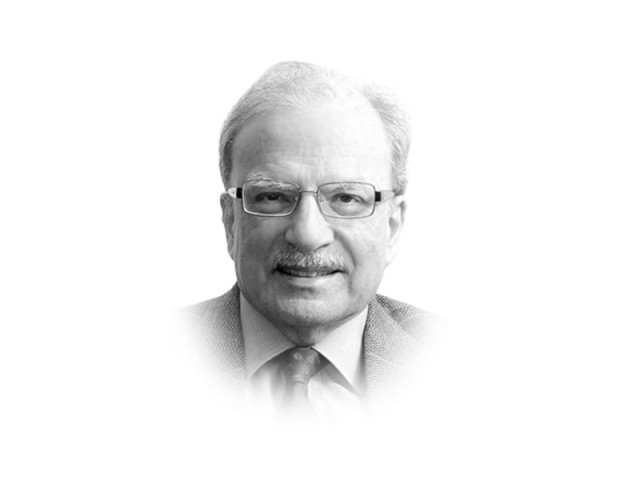Top priority: the economy
Pakistan need to quickly develop an approach towards international commerce that will bring in more foreign exchange.

The writer is a former caretaker finance minister and has served as vice-president at the World Bank
To reform the resource mobilisation aspect of promoting development, the new policymakers may have to do some out-of-the-box thinking. One suggestion that was made in this regard was by the PML-N. Recognising that the Eighteenth Amendment gave the provinces the opportunity to increase self-reliance, the party would like to have some of the more creditworthy cities float bonds in the capital markets to raise finance for some of the large urban infrastructure projects the party is proposing to undertake if it is put in policymaking positions. There are, of course, risks involved in such an approach. Cities, even in more developed countries, can become imprudent in raising money from the markets and spending it on projects that do not produce the returns needed to service the debt that is being accumulated. While there is considerable potential in this approach, the downside risks should also be recognised. That said, projects such as the Metro Bus System in Lahore could be financed by floating municipal bonds. Following approaches such as these, Pakistan could increase the tax-to-GDP ratio by 7.5 percentage points by 2018. This addition to public finance, coupled with improvements in efficiency in the use of public resources, could add two to two and half percentage points to the rate of increase in the national product.
Another area that needs attention is the external side of the development equation. Pakistan will need to quickly develop an approach towards international commerce that will bring in more foreign exchange. Only then will we be able to reduce our dependence on external finance. One is to change the economy’s structure so that it produces more goods and services for international markets. The second is to reorient the direction of commerce so that Pakistan’s approach is more in line with what is suggested by the gravity model of trade. Pakistan must focus on developing deeper trading relations with countries in its immediate neighbourhood. Another component of the work the new administrations must begin to do is to develop a growth strategy that focuses on Pakistan’s many advantages. My list includes at least six — agriculture; small scale manufacturing; a large and very young population; well-educated and well-trained women whose entry into the economy has already begun to give it much-needed dynamism; international trade; and making use of the skills and resources available with Pakistan’s diasporas in three continents.
After announcing such measures, the new administration could initiate the process of building confidence in the future of the country and its economy. It would provide a strong signal to the private players in the country and foreign investors, who may begin to see opportunities for making reasonable returns on their investments. The return of foreign direct investment is, of course, contingent on a significant improvement in the security situation.
If we add all the increments to growth I have suggested, it is within the realm of possibility to double the rate of GDP growth over the next five years. By 2018, the rate of increase in the national product may go up from the present three to 3.5 per cent a year to six to seven per cent.
Published in The Express Tribune, May 6th, 2013.














COMMENTS
Comments are moderated and generally will be posted if they are on-topic and not abusive.
For more information, please see our Comments FAQ